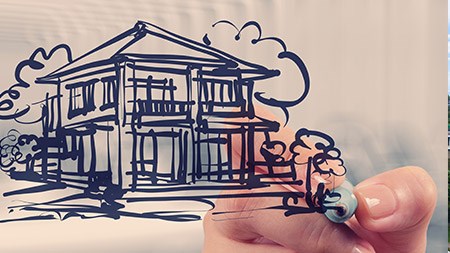Home-ownership continues to be a viable investment option and major element of building a foundation for personal wealth over the long-term, says Adrian Goslett, CEO of RE/MAX of Southern Africa, who points out that well researched property purchases have allowed many knowledgeable buyers to accomplish many of their financial goals.
He notes that successful property investment depends largely on the buyer’s knowledge of the current investment circumstances and how much research they are willing to conclude before they commit to any particular purchase. “Decisions made during the buying process will affect the buyer’s return when they decide to sell. Currently market conditions favour buyers, however there are certain elements that are important to consider regardless of the market or conditions surrounding the purchase such as the location of the property and amenities within proximity to name a few. It is also vital that a property purchase is viewed as a long-term investment in order for the buyer to realise the greatest return on their investment,” says Goslett.
Surveys concluded in the US suggests that American home buyers have a long-term view when it comes to home-ownership; with nearly half believing that property investment is better than stocks. The results are an indication that the long-term view of home ownership as a fundamental goal and value still remain sound. The consumers who were surveyed confirmed that the typical American seller is experiencing positive returns, and that the vast majority of homeowners see their property as a good long-term investment. The average homeowner had been in their home for a period of eight years, while first-time home buyers reported that they planned to stay in their new property for a minimum of 10 years, and repeat buyers plan to hold on to their property for 15 years. “The overall results confirmed two aspects: home ownership encourages stability, and the longer you hold on to your property, the better the returns,” says Goslett.
Goslett says that the results of the American survey concur with similarities found in the South African residential property market. “Much like their American counterparts, South African sellers who had purchased their property at the peak of the property boom and had to sell within a short period of time were negatively affected by the price correction of the current market. However, sellers who had owned their property for eight years or longer had made sound returns when they sold their property. This points to the fact that although fluctuations in the housing market are to be expected, those who can hold onto their property for the long-term can be certain of healthy gains on the value of their property in the future,” says Goslett.
He notes that during the boom period many investors were able to buy and sell houses for a quick gain. However, this was brought about by the unique circumstances of that particular period and is not likely to repeat itself. Currently the goal is to grow home equity over a longer period. “The lending practises of financial institutions have also largely impacted the market and how property investment is viewed. With stricter lending criteria, households are kept in check with regards to manageable debt levels. This has been a major influence in a slower, steady and more sustainable market,” says Goslett.
He adds that another key element to successful property investment is understanding the life cycle of the property market. Knowledge of the different aspects of the market cycle can prove to be an invaluable tool when knowing when to purchase property and when to sell. “The optimum time for a homebuyer to enter the market is when the cycle is bottoming out, or when the market has just begun to recover. This is the phase of the cycle that we are currently in, making it the ideal time to invest,” he says.
With property pricing at its current level and remarkably low interest rates, those who purchase property in the current market and are able to hold on to their investments for a period of between five and 10 years will see a healthy return. This is provided that they have completed the necessary research and bought the right property in the right area.
“Growth in the current property market is evident and it is predicted by economists that property pricing will gain momentum from this year onwards towards 2020,” says Goslett. “A less volatile option than the stock market, residential property continues to prove itself as a solid investment vehicle performing positively over the long-term,” he concludes.

